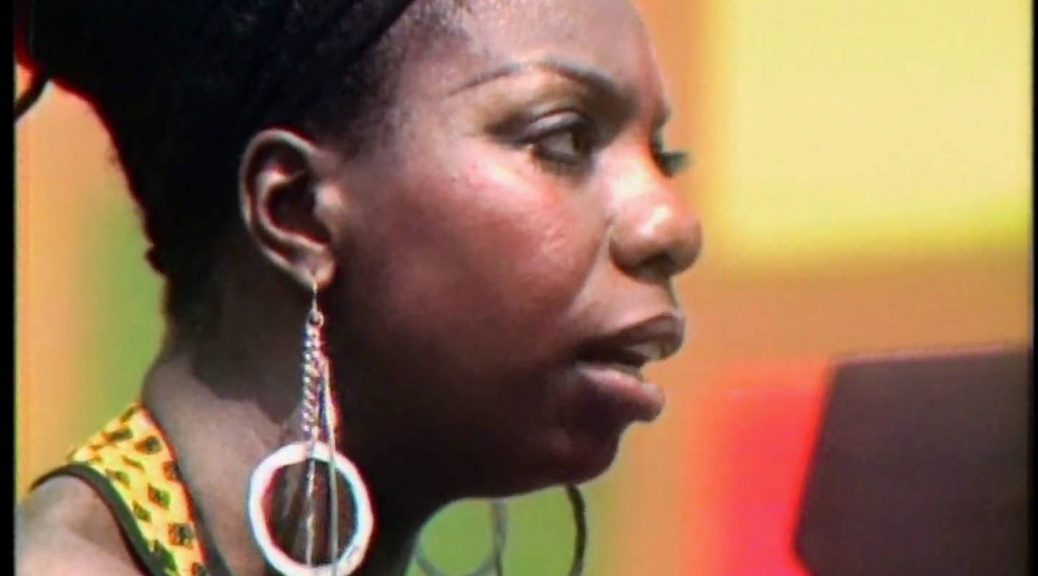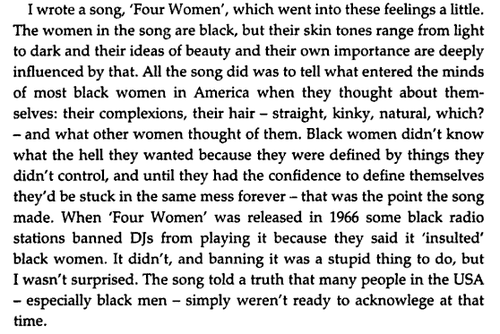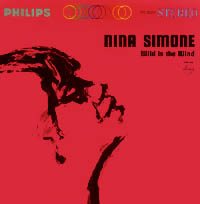Nina Simone Four Women
1966
Nina Simone Four Women
Eunice Kathleen Waymon
Nina Simone, born Eunice Kathleen Waymon, aspired to be a concert pianist, not an easy thing for a young black woman, even a very talented young black woman.
With the financial help of her Tyron, North Carolina neighbors and her music teacher, Eunice was able to attend the Juilliard School of Music in New York. A next step would have been the Curtis Institute of Music in Philadelphia, but her application was rejected. A rejection she felt was simply a racially motivated one.
She started to take private lessons and to help pay for them she began to perform a mixture of jazz and blues. Knowing her family would disapprove, Waymon adopted a stage name: Nina Simone.
Nina Simone Four Women
Civil Rights Choice
With the rebirth of the civil rights movement, Simone, like other black artists, faced a decision: speak out and risk a career or take that risk. After the assassination of Medgar Evers and the terrorist attack on the 16th Street Baptist Church in Birmingham, Alabama that killed four girls and blinded another, Simone’s mind was made up.
“Mississippi Goddam” reflected her anger and decision. She felt that the conciliatory demands, the non-violent approach that Martin Luther King, Jr used were not useful. She adopted he separatist views of a Malcolm X and the Black Nationalist movement.
Nina Simone Four Women
Wild Is the Wind
The 1966 album, Wild is the Wind (1966), Simone included the song “Four Women.” The album itself reflected the many styles Simone had begun to use by then: jazz, blues, folk, R & B. and pop, but “Four Women” reflected her realization of the choices a black woman in America faced. Continued slavery. The mixed race woman rejected by both races. The prostitute. The militant.
Nina Simone Four Women
Four Women
The song, like the women, was rejected as racist by many on both sides.
| My skin is black My arms are long My hair is woolly My back is strong Strong enough to take the pain inflicted again and again What do they call me My name is AUNT SARAH My name is Aunt Sarah |
My skin is tan My hair is fine My hips invite you And my mouth like wine Whose little girl am I? Anyone who has money to buy What do they call me My name is SWEET THING My name is Sweet Thing |
| My skin is yellow My hair is long Between two worlds I do belong My father was rich and white He forced my mother late one night What do they call me My name is SAFFRONIA My name is Saffronia |
My skin is brown my manner is tough I’ll kill the first mother I see My life has been too rough I’m awfully bitter these days because my parents were slaves What do they call me My name is PEACHES |
Nina Simone Four Women
Expatriate
Simone’s career was not an easy one. Difficult marriages. Illness. Controversial views. An expatriate. She died of breast cancer in 2003 at her home in Carry-le-Rouet, France, near Marseille.
Peter Keepnews wrote in his New York Times article: Ms. Simone was as famous for her social consciousness as she was for her music. In the 1960’s no musical performer was more closely identified with the civil rights movement. Though she was best known as an interpreter of other people’s music, she eloquently expressed her feelings about racism and black pride in those years in a number of memorable songs she wrote herself.



